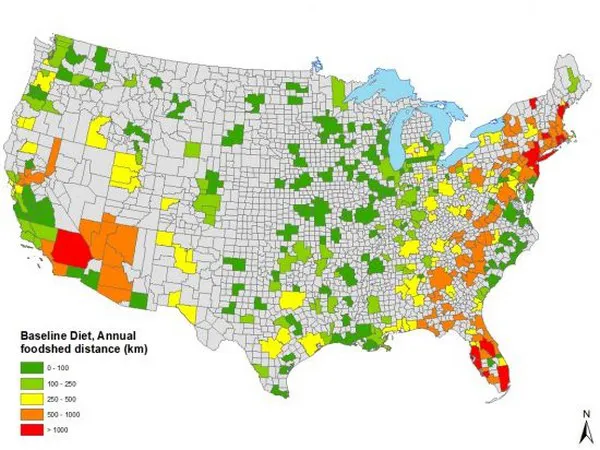A modeling study by Tufts University, published in Environmental Science & Technology, found that some but not all US metro areas could grow all the food they need within 155 miles. The study considered 378 metropolitan areas across the country, and found that metro centers in the Northwest and interior of the country have the greatest potential for localization.

Although large portions of the population along the Eastern Seaboard and the southwest corner of the U.S. could not meet demand locally, other cities are surrounded by ample land to support local and regional food systems, researchers say.
The results suggest that:
- Metro centers in the Northwest and interior of the country have the greatest potential for localization.
- Large portions of the population along the Eastern Seaboard and the southwest corner of the U.S. would have the least potential for localization.
- Surplus land existed under all diet scenarios, raising questions about the best use of land for meeting health, environmental, and economic goals.
“Not everyone lives near enough agricultural land to have an entirely local or even regional food supply. Most cities along the Eastern Seaboard and in the southwest corner of the U.S. could not meet their food needs locally, even if every available acre of agricultural land was used for local food production. Yet, many cities in the rest of the country are surrounded by ample land to support local and regional food systems,” said Peters, senior author and associate professor at the Friedman School, whose research focuses on sustainability science.
Read more in this article by Tufts University.
For more information:
Tufts University
www.tufts.edu
